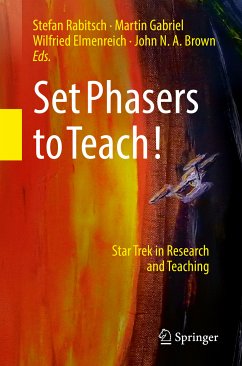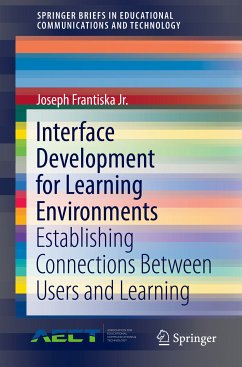
Set Phasers to Teach! (eBook, PDF)
Star Trek in Research and Teaching
Redaktion: Rabitsch, Stefan; Brown, John N. A.; Elmenreich, Wilfried; Gabriel, Martin
Versandkostenfrei!
Sofort per Download lieferbar
36,95 €
inkl. MwSt.
Weitere Ausgaben:

PAYBACK Punkte
18 °P sammeln!
For 50 years, Star Trek has been an inspiration to its fans around the world, helping them to dream of a better future. This inspiration has entered our culture and helped to shape much of the technology of the early 21st Century.The contributors to this volume are researchers and teachers in a wide variety of disciplines; from Astrophysics to Ethnology, from English and History to Medicine and Video Games, and from American Studies to the study of Collective Computing Systems. What the authors have in common is that some version of Star Trek has inspired them, not only in their dreams of what...
For 50 years, Star Trek has been an inspiration to its fans around the world, helping them to dream of a better future. This inspiration has entered our culture and helped to shape much of the technology of the early 21st Century.
The contributors to this volume are researchers and teachers in a wide variety of disciplines; from Astrophysics to Ethnology, from English and History to Medicine and Video Games, and from American Studies to the study of Collective Computing Systems. What the authors have in common is that some version of Star Trek has inspired them, not only in their dreams of what may be, but in the ways in which they work - and teach others to work - here in the real world.
Introduced with references to Star Trek films and television shows, and illustrated with original cartoons, each of the 15 chapters included in this volume provides insights into research and teaching in this range of academic fields.
Dieser Download kann aus rechtlichen Gründen nur mit Rechnungsadresse in A, B, BG, CY, CZ, D, DK, EW, E, FIN, F, GR, HR, H, IRL, I, LT, L, LR, M, NL, PL, P, R, S, SLO, SK ausgeliefert werden.












